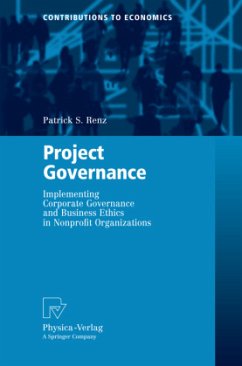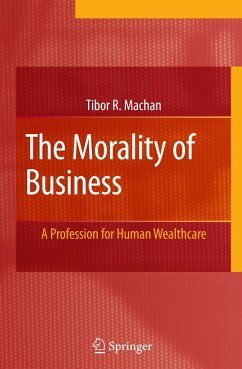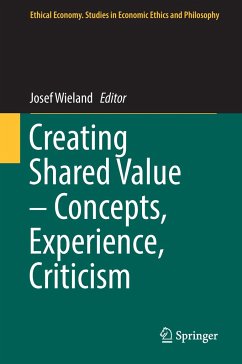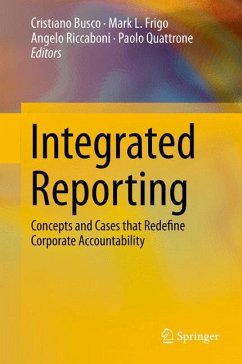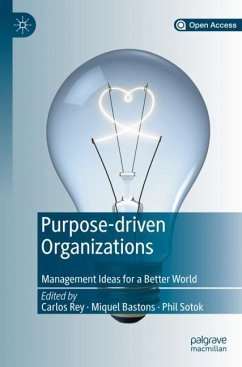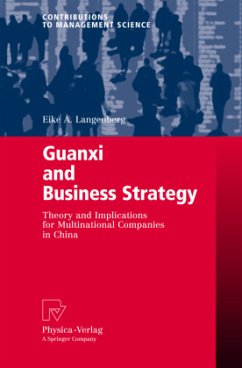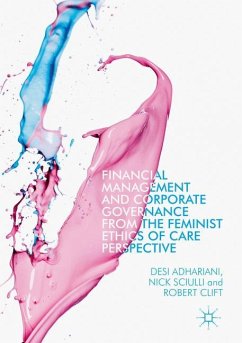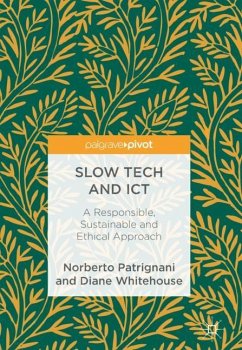
Business Ethics and Leadership from an Eastern European, Transdisciplinary Context
The 2014 Griffiths School of Management Annual Conference on Business, Entrepreneurship and Ethics
Herausgegeben: Vaduva, Sebastian; Fotea, Ioan S.; Thomas, Andrew R.

PAYBACK Punkte
38 °P sammeln!
This book aims to provide insight into the fields of business and leadership by examining the role of ethics in these areas. The papers in this book derive from the 2014 Annual Griffiths School of Management International Conference, organized by Emanuel University of Oradea, Romania, where academics and practitioners interacted and discussed current insights and research in the different dimensions of business ethics and leadership. This resulting book offers empirical and theological research on ethics, business and leadership from a transdisciplinary and knowledge- based context.Since the f...
This book aims to provide insight into the fields of business and leadership by examining the role of ethics in these areas. The papers in this book derive from the 2014 Annual Griffiths School of Management International Conference, organized by Emanuel University of Oradea, Romania, where academics and practitioners interacted and discussed current insights and research in the different dimensions of business ethics and leadership. This resulting book offers empirical and theological research on ethics, business and leadership from a transdisciplinary and knowledge- based context.
Since the financial crisis in 2008, the debate on business ethics and leadership has dominated the public sphere at all levels of interest, from grassroots to the elites in educational institutions, governments, businesses and NGOs. Naturally, constructive and transdisciplinary discussions need to take place, with due consideration for the specific context of each situation, sothat propositions upon which to build the future can be formulated. These discussions unfold in an ever more intricate world of business, powered by ever more pervasive and intelligent technology and scientific development, all brought together by globalization. In this world, organizations are faced with new and more complex ethical issues in their pursuit to serve clients, gain profits, motivate employees, collaborate with partners and act responsibly towards society and the environment.
A wise approach to changing the future is to understand the mistakes of the past, because one must always learn how to overcome past mistakes in order to develop a better future. But a necessary approach to building a better future is looking at the world through a transdisciplinary mindset. This allows us to see the world as a complex whole; it fosters creative interaction between fields of knowledge; it opens doors for knowledge and innovation flows across disciplines; and it allowsthe tackling of complex problems and situations. Given the current context of our world, this is an approach that we ought to pursue.
Featuring contributions from academics, researchers, scholars and practitioners from across the globe, this book will be of great interest for students and practitioners in the fields of business, leadership and ethics.
Since the financial crisis in 2008, the debate on business ethics and leadership has dominated the public sphere at all levels of interest, from grassroots to the elites in educational institutions, governments, businesses and NGOs. Naturally, constructive and transdisciplinary discussions need to take place, with due consideration for the specific context of each situation, sothat propositions upon which to build the future can be formulated. These discussions unfold in an ever more intricate world of business, powered by ever more pervasive and intelligent technology and scientific development, all brought together by globalization. In this world, organizations are faced with new and more complex ethical issues in their pursuit to serve clients, gain profits, motivate employees, collaborate with partners and act responsibly towards society and the environment.
A wise approach to changing the future is to understand the mistakes of the past, because one must always learn how to overcome past mistakes in order to develop a better future. But a necessary approach to building a better future is looking at the world through a transdisciplinary mindset. This allows us to see the world as a complex whole; it fosters creative interaction between fields of knowledge; it opens doors for knowledge and innovation flows across disciplines; and it allowsthe tackling of complex problems and situations. Given the current context of our world, this is an approach that we ought to pursue.
Featuring contributions from academics, researchers, scholars and practitioners from across the globe, this book will be of great interest for students and practitioners in the fields of business, leadership and ethics.





